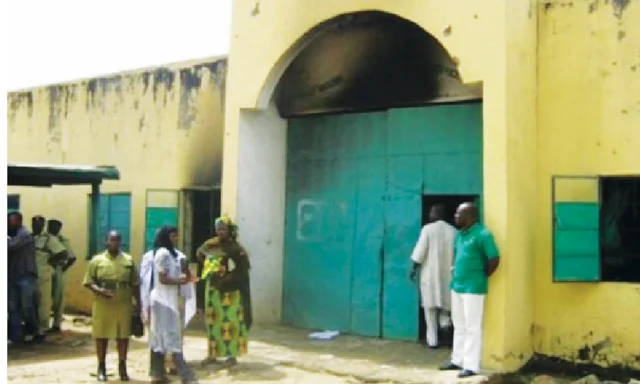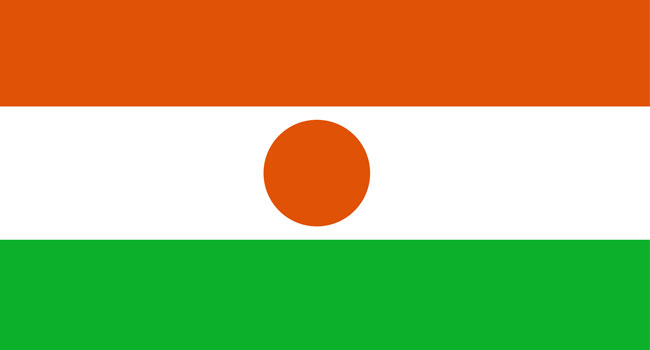The Socio-Economic Rights and Accountability Project and Centre for Journalism Innovation and Development have filed a lawsuit against the President, Major General Muhammadu Buhari (retd.), asking the court to “declare arbitrary and illegal, the N5 million imposed on Trust Television, Multichoice Nigeria Limited, Nigerian Television Authority-Startimes Limited and others over their documentaries on terrorism in the country.”
Joined in the suit as Defendants are the Minister of Information and Culture, Mr Lai Mohammed, and the National Broadcasting Commission.
The NBC had last week imposed the fines on the media houses, claiming that their documentaries “glorified the activities of bandits and undermines national security in Nigeria,” and contravene the provisions of the Nigeria Broadcasting Code.
The PUNCH reports that Trust TV was fined over the broadcast of the documentary titled “Nigeria’s Banditry: The Inside Story”, which was aired by the station on March 5, 2022.
The Trust TV management, in a statement to The PUNCH last Wednesday, noted that the fine was communicated to the media firm in a letter signed by the NBC Director General, Balarabe Shehu Illela.
Illela had said the fine was imposed on Trust TV because its broadcast of the said documentary contravened sections of the National Broadcasting Code.
But in the suit number FHC/L/CS/1486/2022 filed last Friday at the Federal High Court, Lagos, SERAP, and the CJID are seeking: “an order setting aside the arbitrary and illegal fines of N5 million and any other penal sanction unilaterally imposed by the NBC on these media houses simply for carrying out their constitutional duties.”
According to the plaintiffs: “The NBC and Mohammed have not shown that the documentaries by the media houses would impose a specific risk of harm to a legitimate state interest that outweighs the public interest in the information provided by the documentaries.”
The plaintiffs said: “The documentaries by these independent media houses pose no risk to any definite interest in national security or public order.”
The plaintiffs also said, “It is inconsistent and incompatible with the Nigerian Constitution 1999 [as amended] to invoke the grounds of ‘glorifying terrorism and banditry’ as justifications for suppressing access to information of legitimate public interest that does not harm national security.”
The plaintiffs also said, “The documentaries by the independent media houses are in the public interest, and punishing the media houses simply for raising public awareness about these issues would have a disproportionate and chilling effect on their work, and on the work of other journalists and Nigerians.”
According to the plaintiffs, the action by the NBC and Mohammed is arbitrary, illegal, and unconstitutional, as it is contrary to section 39 of the Nigerian Constitution, and international human rights treaties including the African Charter on Human and Peoples’ Rights, which Nigeria has ratified.
The suit filed on behalf of the plaintiffs by their lawyers Kolawole Oluwadare and Ms Adelanke Aremo, read in part: “A fine is a criminal sanction and only the court is empowered by the Constitution to impose it. Fine imposed by regulatory agencies like the NBC without recourse to the courts is unfair, illegal, and unconstitutional.”
“The grounds of ‘glorifying terrorism and banditry’ used as the bases for sanctioning the media houses are entirely contrary to constitutional and international standards on freedom of expression and access to information.”
“Imposing any fine whatsoever without due process of law is arbitrary, as it contravenes the principles of nemo judex in causa sua which literally means one cannot be a judge in his own cause and audi alteram partem which means no one should be condemned unheard.”
“Article 19 (1) of the International Covenant on Civil and Political Rights establishes the right to freedom of opinion without interference. Article 19(2) establishes Nigeria’s obligations to respect ‘the right to freedom of expression,’ which includes the freedom to seek, receive and impart information, regardless of frontiers.”
“Under article 19 (3), restrictions on the right to freedom of expression must be ‘provided by law’, and necessary ‘for respect of the rights or reputations of others’ or ‘for the protection of national security or of public order, or of public health and morals.”
“Although article 19(3) recognises ‘national security’ as a legitimate aim, the Human Rights Council, the body charged with monitoring implementation of the Covenant, has stressed ‘the need to ensure that the invocation of national security is not used unjustifiably or arbitrarily to restrict the right to freedom of opinion and expression.’”
“The grounds for imposing fines on these independent media houses fail to meet the requirements of legality, necessity, and proportionality.”
“The requirement of necessity also implies an assessment of the proportionality of the grounds, with the aim of ensuring that the excuse of ‘glorifying terrorism and banditry’ and ‘national security’ are not used as a pretext to unduly intrude upon the rights to freedom of expression and access to information.”
No date has been fixed for the hearing of the suit.







